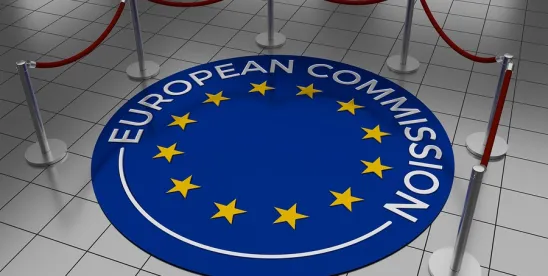Antitrust and Competition
The European Commission Opens an Investigation into Alleged Market Allocation and No-Poach Agreements in the Online Food Delivery Sector
On 23 July 2024, the Commission opened an antitrust investigation against two large online food delivery companies (Companies) in the European Economic Area (EEA).
In July 2018, one of the two Companies acquired a minority shareholding in the other company and subsequently acquired sole control in July 2022. The Commission is concerned that before the acquisition of control, the Companies may have infringed Article 101(1) of the Treaty on the Functioning of the European Union by allocating geographic markets and sharing commercially sensitive information. Market allocation refers to a conduct by competitors aiming at dividing and allocating between them markets or customers. This type of agreement is often accompanied by exchange of commercially sensitive information (e.g., on commercial strategies, individual customers, prices, capacity, costs, and product characteristics).
In addition, the Commission is concerned that the Companies may have agreed not to poach each other’s employees. No-poach agreements refer to contracts or arrangements between employers who compete in the same market to refrain from hiring each other’s employees.
The Commission will now carry out an in-depth investigation as a matter of priority. Moreover, the Commission has emphasized that it is actively scrutinizing these conducts and will continue to coordinate with national competition authorities within the European Competition Network on these cases.
This is the first time that the Commission is investigating no-poach agreements. The Commission stated that the objective of this investigation is also to ensure a fair labor market where employers do not collude to limit the number and quality of opportunities for workers but compete for talent. This is in line with the Commission’s Policy Brief of May 2024, which focusses on restrictive labor market agreements. The Policy Brief states that wage-fixing and no-poach agreements between competitors are so harmful that the agreements are “by object” restrictions without the need for the Commission to show anticompetitive effects. Also, national competition authorities have already started investigating these types of conducts. For instance, the Portuguese competition authority opened an investigation against a global tech consultancy firm in May 2024 that allegedly agreed not to hire its rivals’ employees. Also, on 16 May 2024, the Slovakian competition authority opened an investigation into a potential labor cartel agreement to assess whether a national trade association restricted competition when hiring employees through a provision in the code of ethics it had adopted.
Significantly, this investigation is also scrutinizing alleged anticompetitive agreements that may have occurred in the context of a minority shareholding held by one company in another. The Commission noted that the alleged anticompetitive practices could have been facilitated by holding a minority share in the other company.
There is no legal deadline by which the Commission must complete its investigation. Should the Commission confirm its initial assumptions, the Companies investigated could face a fine that can amount up to 10% of their group turnover in the last financial year.
Environmental Affairs
Council of the European Union Adopts General Approach on Proposed Green Claims Directive
On 17 June 2024, the Council adopted its general approach on the proposed Green Claims Directive. The directive aims at preventing greenwashing, helping consumers make informed choices, and eliminating difficulties with labelling for companies selling their products across several EU Member States. It will impose minimum requirements for the substantiation, communication, and verification of explicit environmental claims in business to consumer commercial practices.
The Council’s general approach amends the Commission’s proposal of 22 March 2023 by:
- Distinguishing explicit environmental claims and environmental labels to clearly specify the respective obligations and requirements;
- Specifying that environmental claims and labels should be clear and easy to understand, with a specific reference to the environmental characteristics they cover (such as durability, recyclability, or biodiversity);
- Prohibiting claims on the cumulative environmental impacts of a product or trader by a single environmental score unless this is based on rules for aggregated indicators established under EU law. It also introduces a similar rule for aggregated environmental labels;
- Introducing a simplified procedure to exempt certain types of explicit environmental claims from third-party verification;
- Providing for the possibility to establish new environmental labelling schemes and submit them for verification; and
- With respect to the new requirements to prove climate-related claims, including those involving carbon credits, distinguishing between (a) contribution claims (carbon credits to contribute to climate action) and (b) offset claims (carbon credits to balance out an emissions share). For offset claims, companies must prove a net-zero target and show progress towards it, as well as the percentage of total greenhouse gas emissions that have been offset.
The Council is now ready to commence negotiations, also known as trilogues, with the Parliament, which adopted its position on 12 March 2024. Once the Parliament and the Council have agreed on a final text, it can be published and enter into force.
Sanctions
Council of the European Union Releases Revised Version of its Best Practice Guidance for Sanctions Implementation
On 3 July 2024, the Council released a revised version of its Best Practices guidance for the effective implementation of restrictive measures. With the revised guidance, several notable changes have been made. In particular, the provisions on ownership and control, which lay out the “ownership” and “control” tests for an assessment of whether nondesignated entities might be linked to listed persons and entities, have been altered. The revised guidance includes a modification to the percentage of proprietary rights required for an entity to be considered owned by another person or entity, changing it from “more than 50%” to “50%.”
The guidance also contains a clarification that aggregated ownership should be considered when assessing the overall ownership. For example, if one designated person owns 30% of an entity and another owns 25%, the entity is considered owned by designated persons. While this reflects the position previously taken by the Commission in its Consolidated FAQs on the implementation of Council Regulation No 833/2014 and Council Regulation No 269/2014 (i.e., sanctions regimes adopted in relation to Russia’s actions destabilizing the situation in Ukraine), the revised guidance confirms that this reasoning applies to all EU sanctions regimes.
With respect to the notion of control, the guidance provides a clarification that de facto power to exercise dominant influence over an entity without being the holder of that right (including, for example, by means of a front company) should be considered when determining if a designated person controls the entity. The revised version includes additional scenarios where an entity is owned or controlled by a designated entity, including majority shareholding, buyback options, transferring shares near the time of designation, using front persons, and utilizing trusts, shell companies, and limited liability companies. Finally, there is additional guidance on the meaning of “acting on behalf or at the direction of a natural or legal person, entity or body.” Although this notion is distinct from those of ownership and control, its effects can be placed on an equal footing.
Other EU Developments
European Commission’s Political Guidelines—First Glance at Forthcoming Policy and Regulatory Priorities
On 18 July 2024, the Parliament confirmed Ursula von der Leyen for a second term as President of the Commission. She obtained a majority of 401 votes (360 needed). Ahead of the vote, Von der Leyen published her Political Guidelines for 2024-2029, outlining sectoral high-level policy priorities for the next term of the Commission. While political in nature, the document provides the first look at the likely regulatory and legislative developments in the coming years.
Economy and Finance
- The Clean Industrial Deal—a forthcoming legislative package aimed at bolstering the European Union’s industrial competitiveness by, e.g., cutting red tape.
- A new EU-wide legal status for companies. This is expected to take the form of a so-called “28th regime” to allow companies to benefit from a simpler, harmonized set of rules in certain areas.
- A new category of small midcaps to assess where existing regulation applicable to large companies is too burdensome, disproportionate, or a hindrance to competitive development.
- European Savings and Investments Union, including banking and capital markets.
Energy and Sustainability
- New 90% emission reduction target for 2040 to help the European Union achieve its 2050 net-neutrality goal.
- Industrial Decarbonisation Accelerator Act to support industries and companies through the low-carbon transition.
- Aggregate demand mechanism for joint EU purchases of hydrogen and raw materials. This will likely replicate the joint EU natural gas purchases after the war in Ukraine.
- A Circular Economy Act, helping to create market demand for secondary materials and a single market for waste.
- Revision of REACH, the European Union’s main chemical legislation, including potential restrictions on per- and polyfluoroalkyl substances (PFAS).
Digital
- Bolstered enforcement of the Digital Services Act and the Digital Markets Act.
- A new Apply AI Strategy to boost new industrial uses of AI.
- New European AI Research Council.
- European Data Union Strategy to facilitate access to data for companies, especially small or midsize enterprises.
Next steps
In the coming weeks, EU Member States will put forward their European Commissioners’ candidates and relevant portfolios will be assigned, which are normally subject to intense political negotiations. The Commissioners-designate will go through Parliament confirmation hearings in late September to early October. If there are no delays, the new Commission should take up the office in November. After that, the Commission is expected to release its Work Plan for 2025, detailing all legislative proposals and revisions planned for its first year of activity.
Simas Gerdvila, Petr Bartoš, Vittoriana Todisco, Kathleen Keating, and Covadonga Corell Perez de Rada also contributed to this article.








 />i
/>i
